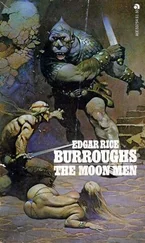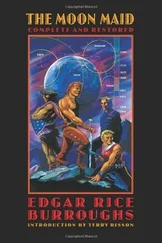Edgar Burroughs - The Red Hawk
Здесь есть возможность читать онлайн «Edgar Burroughs - The Red Hawk» весь текст электронной книги совершенно бесплатно (целиком полную версию без сокращений). В некоторых случаях можно слушать аудио, скачать через торрент в формате fb2 и присутствует краткое содержание. Жанр: Боевая фантастика, на английском языке. Описание произведения, (предисловие) а так же отзывы посетителей доступны на портале библиотеки ЛибКат.
- Название:The Red Hawk
- Автор:
- Жанр:
- Год:неизвестен
- ISBN:нет данных
- Рейтинг книги:3 / 5. Голосов: 1
-
Избранное:Добавить в избранное
- Отзывы:
-
Ваша оценка:
- 60
- 1
- 2
- 3
- 4
- 5
The Red Hawk: краткое содержание, описание и аннотация
Предлагаем к чтению аннотацию, описание, краткое содержание или предисловие (зависит от того, что написал сам автор книги «The Red Hawk»). Если вы не нашли необходимую информацию о книге — напишите в комментариях, мы постараемся отыскать её.
The Red Hawk — читать онлайн бесплатно полную книгу (весь текст) целиком
Ниже представлен текст книги, разбитый по страницам. Система сохранения места последней прочитанной страницы, позволяет с удобством читать онлайн бесплатно книгу «The Red Hawk», без необходимости каждый раз заново искать на чём Вы остановились. Поставьте закладку, и сможете в любой момент перейти на страницу, на которой закончили чтение.
Интервал:
Закладка:
“Tell me where you are going,” I said, “and I will ride with you, lest you be again attacked.”
“I do not know where to go,” she replied, “for wherever I go I meet enemies.”
“Where are your people?” I demanded.
“I fear that they are all slain,” she told me, a quiver in her voice.
“But where were you going? You must have been going somewhere.”
“I was looking for a place to hide,” she said. “The Nipons would let me stay with them, if I could find them. My people were always kind to them. They would be kind to me.”
“Your people were of the Kalkars, even though you say you are no Kalkar, and the Nipons hate them. They would not take you in.”
“My people were Americans. They lived among the Kalkars, but they were not Kalkars. We lived at the foot of these hills for nearly a hundred years, and we often met the Nipons. They did not hate us, though they hated the Kalkars about us.”
“Do you know Saku?” I asked.
“Since I was a little child I have known Saku the Chief,” she replied.
“Come, then,” I said; “I will take you to Saku.”
“You know him? He is near?”
“Yes. Come!”
She followed me down the trail up which I had so recently come, and although I begrudged the time that it delayed me, I was glad that I might have her off my hands so easily and so quickly; for of a certainty I could not leave her alone and unprotected, nor could I take her upon my long journey with me even could I have prevailed upon my people to accept her.
In less than an hour we came upon Saku’s new camp, and the little people were surprised indeed to see me, and overjoyed when they discovered Bethelda, more than assuring me by their actions that the girl had been far from stating the real measure of the esteem in which the Nipons held her. When I would have turned to ride away they insisted that I remain until morning, pointing out to me that the day was already far gone, and that being unfamiliar with the trails I might easily become lost and thus lose more time than I would gain.
The girl stood listening to our conversation, and when I at last insisted that I must go because, having no knowledge of the trails anyhow, I would be as well off by night as by day, she offered to guide me.
“I know the valley from end to end,” she said. “Tell me where you would go and I will lead you there as well by night as by day.”
“But how would you return?” I asked.
“If you are going to your people perhaps they would let me remain, for am I not an American, too?”
I shook my head. “I am afraid that they would not,” I told her. “We feel very bitterly toward all Americans that cast their lot with the Kalkars-even more bitterly than we feel toward the Kalkars themselves.”
“I did not cast my lot with the Kalkars,” she said proudly. “I have hated them always-since I was old enough to hate. If four hundred years ago my people chose to do a wicked thing, is it any fault of mine? I am as much an American as you, and I hate the Kalkars more because I know them better.”
“My people would not reason that way,” I said. “The women would set the hounds on you, and you would be torn to pieces.”
She shivered. “You are as terrible as the Kalkars,” she said bitterly.
“You forget the generations of humiliation and suffering that we have endured because of the renegade Americans who brought the Kalkar curse upon us,” I reminded her.
“We have suffered, too,” she said, “and we are as innocent as you,” and then suddenly she looked me squarely in the eyes. “How do you feel about it? Do you, too, hate me worse than if I were a Kalkar? You saved my life, perhaps, to-day. You could do that for one you hate?”
“You are a girl,” I reminded her, “and I am an Americana Julian,” I added.
“You saved me only because I am a girl?” she insisted.
I nodded.
“You are a strange people,” she said, “that you could be so brave and generous to one you hate, and yet refuse the simpler kindness of forgiveness-forgiveness of a sin that we did not commit.”
I recalled the Or-tis, who had spoken similarly, and I wondered if perhaps they might not be right; but we are a proud people and for generations before my day our pride had been ground beneath the heels of the victorious Kalkar.
Even yet the wound was still raw. And we are a stubborn people-stubborn in our loves and our hatreds.
Already I had regretted my friendliness with the Or-tis, and now I was having amicable dealings with another Kalkar-it was difficult for me to think of them as other than Kalkars. I should be hating this one-I should have hated the Or-tis-but for some reason I found it not so easy to hate them.
Saku had been listening to our conversation, a portion of which at least he must have understood.
“Wait until morning,” he said, “and then she can at least go with you as far as the top of the hills and point out the way for you; but you will be wise to take her with you. She knows every trail, and it will be better for her to go with you to your own people. She is not Kalkar, and if they catch her they will kill her.
“Were she Kalkar we would hate her and chase her away; but though she is welcome among us it would be hard for her to remain. We move camp often, and often our trails lead where one so large as she might have difficulty in following, nor would she have a man to hunt for her, and there are times when we have to go without food because we cannot find enough even for our own little people.”
“I will wait until morning,” I said; “but I cannot take her with me; my people would kill her.”
I had two motives in remaining over the night. One was to go forth early in the morning and kill game for the little Nipons in payment for their hospitality, and the other was to avail myself of the girl’s knowledge of the trails, which she could point out from some lofty hilltop. I had only a general idea of the direction in which to search for my people, and as I had seen from the summit that the valley beyond was entirely surrounded by hills I realized that I might gain time by waiting until morning, when the girl should be able to point out the route to the proper pass to my destination.
After the evening meal that night I kept up a fire for the girl, as the air was chill and she was not warmly clad. The little people had only their tents and a few skins for their own protection, nor was there room in the former for the girl, so already overcrowded were they. The Nipons retired to their rude shelters almost immediately after eating, leaving the girl and me alone. She huddled close to the fire and she looked very forlorn and alone.
“Your people are all gone?” I asked.
“My own people-my father, my mother, my three brothers-all are dead, I think,” she replied. “My mother and father I know are dead. She died when I was a little girl. Six months ago my father was killed by the Kalkars. My three brothers and I scattered, for we heard that they were coming to kill us also.
“I have heard that they captured my brothers; but I am not sure. They have been killing many in the valley lately, for here dwell nearly all the pure descendants of Americans, and those of us who were thought to favor the true Or-tis were marked for slaughter by the false Or-tis.
“I had been hiding in the home of a friend of my father, but I knew that if I were found there it would bring death to him and his family, and so I came away, hoping to find a place where I might be safe from them; but I guess there is no place for me-even my friends, the Nipons, though they would let me stay with them, admit that it would be a hardship to provide for me.”
“What will you do?” I asked. Somehow I felt very sorry for her.
Читать дальшеИнтервал:
Закладка:
Похожие книги на «The Red Hawk»
Представляем Вашему вниманию похожие книги на «The Red Hawk» списком для выбора. Мы отобрали схожую по названию и смыслу литературу в надежде предоставить читателям больше вариантов отыскать новые, интересные, ещё непрочитанные произведения.
Обсуждение, отзывы о книге «The Red Hawk» и просто собственные мнения читателей. Оставьте ваши комментарии, напишите, что Вы думаете о произведении, его смысле или главных героях. Укажите что конкретно понравилось, а что нет, и почему Вы так считаете.








